S.A. Crow's Blog, page 5
September 13, 2023
How To Find Promotions for Your Writing
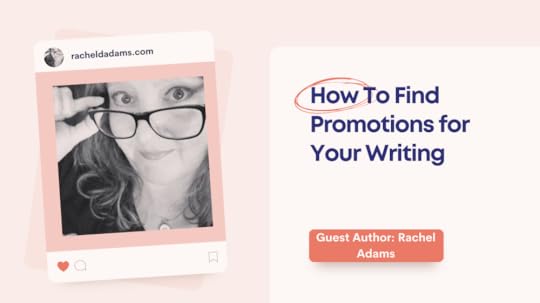
Ways I found more of my audience that can help you as well.
I’m going to do you all a favor and tell you exactly how to handle all of your marketing.
No. That’s not true. However, I can give you some tips about marketing that helped me out by selling some books and some products. And remember, this is the long game. You’re not looking for quantity so much as quality. You want people to become fans, not just hang out for freebies.
This article is not about the basics of book marketing.I am going to assume that you already know about making sure you wrote your book to genre, that it has a cover that works with the genre standard and is professional, you placed great links in your back matter to lead readers to the next book, and that you have a tagline, a blurb, and an elevator pitch that can hook readers immediately.
I am covering methods I have used to help promote my stories that work for me. These are very inexpensive or free.
I only used $50 this year so far in marketing. I’m not using much, because I knew we planned to revise and rewrite portions of the books we had out already. We want to relaunch with the launch of the second book in a large series. However, that was money well spent.
I didn’t just advertise my first book… the main book in our series. I advertised my newsletter.And to do that, I offered a reader magnet - an actual novel prequel. Most of my advertising and promotions went toward building up my newsletter following. When someone signs up for your newsletter and remains there opening and reading each one, they are YOUR reader. They are who you need to make your brand and your stories successful.
They will enjoy your books and, by word of mouth, let other fans of the genre or tropes know all about it.
To get someone on a newsletter listing, you need a newsletter that you put out at least monthly and an email service that helps you do that and also collects subscribers for you. I use Mailerlite (not sponsored) because it gives me availability for having up to 1000 subscribers for the free plan. Also, the automations and newsletter building are both simple.
I also use a reader magnet / ARC service to my full advantage.BookFunnel is good, but I use StoryOrigin because it has more functionality. What you can do on these sites is share your books with other people, get involved in newsletter swaps, and get involved in group promotions. Now these sites often have a free plan and if you can deal with that, go for it. I subscribed to StoryOrigin because I could afford it and it offers a lot of perks.
I can set my filters for the books I would like to put in my newsletter - by genre, trope, age, and even by what I do not want. Then, I choose authors and books that are comparable to me and my own books. I hardly find a “perfect fit” but I get as close as possible.
Through the system we decide if we want to swap or, with promos, if they will accept my books. It’s scheduled and StoryOrigin even lets me know how many clicks I scored/how many clicks the swap partner scored.
Swap and run promotions outside of a service. It’s usually free and worth it!These have been amazing for my audience's growth. You don’t need to pay for a service to get involved in these. You can also look for authors with similar books and ask them if they want to swap promotions. Promote their books on social media and in your newsletter and they can do the same for yours.
This is especially useful if you haven’t got a newsletter service started. Though I encourage you to get a newsletter going, since you can collect your fans on your own server this way and won’t lose them to changes in social media.
There are also authors out there that do paid promotions, but at a very cheap rate. Approaching other authors who can help promote you to new readers is a valuable tool. I got involved with a much more successful author of adult age level urban fantasy and paranormal romance. Turns out, she has a paid program that is only $5 per month. She sends it out to all of her readers and posts it all over social media, also offers a gift card as incentive to readers to sign up to our socials. It’s been a winning situation for me.
Social media platforms are an amazing way to find new audience members and sales, too.Just talk to the authors that are your comps (comparable) on social media. Most love to give you solid advice. Not to mention, you’re networking and learning about them. The more you do so, the more they recognize you.
When the authors have special promotions, they might choose you since you’ve been active on their social media. If nothing else, their fans (who already read things similar to what you offer) will see you and you may pick up more readers this way. You also could get an online friend and mentor out of it. So be gracious.
Websites and blogs are still a strategy.Some websites and blogs also have promotional sales that can be affordable and still get your books and stories in front of a new audience. Find blogs and websites dedicated to your genre, tropes, or other things within your story. Find out if they offer advertising on their site.
Example: Our book is urban fantasy, but the paranormal romance could be for all the original characters. Each has a story to tell. But my MAIN CHARACTERS are a gay man and a pansexual dragon shifter who are in an opposite attract / slow burn relationship. Also, I am a bisexual author. So I will promote them on blogs and websites that promote gay romance and LGBTQ subject matters.
There are also fan groups on social media that focus on genres and tropes.The subjects you cover in your book are all important. You need to make a list of the genres your book fits into and the tropes within. Some of these fan groups can get very detailed in what they like. Find the ones that would like your stories.
Hang out. Talk about comparable books and stories. Ask questions that are relevant. Take some time each week to go through them. Find out when they allow self-promotions. Go for it! You are finding your audience.
You may find some other authors in these groups and also just hanging out in social media land - just like you. If you like them, offer to promote them for free on your social media. Not only do I do this, but I congratulate them when they have a win. I encourage them. Why? Because we all win if we all help one another.
What about Goodreads?Goodreads is also a great place to find readers. They have reading groups and you just need to look for the ones in your genre. If you are a talented writer, you probably also read a lot of books similar to your own. That’s how you keep your ideas fresh and understand your own market. So this kind of thing should not be a problem.
Enjoy some reads and some conversation. Most of these groups allow self-promotion here and there. Follow their rules and see where you can advertise your work. This is usually free and I’ve gotten quite a few readers from this kind of promotion.
Some final advice…Don’t think that these promotions are for books only. I also advertise my serial series on several of these sites. So long as you have the picture, a link, and a description, you’re usually welcome to promote your work with them. Just ask.
Through StoryOrigin, I have promoted my Kindle Vella & serials on Ko-fi. I’ve recently helped promote someone on Wattpad and I’ve promoted my own stories from Kindle Vella.
On social media, I advertise the serial stories to groups that are geared toward that and also in the groups that match the genre and tropes. So far, the administrators have not scolded me for it. However, if you’re nervous about it, ask first.
Now, be prepared to try new trends and also to change up your focus as time passes. Nothing online remains the same. Platforms change and you need to be prepared to adapt. If something isn’t getting results, move on. You can always try later or just focus on s different social media.
The best advice I can give you is to always be prepared to adapt and always be honest with yourself about failure. If you fail at something, you’re learning what does not work. Shift gears. Try something else.
I hope this article was helpful for you and maybe opened your eyes to new ways to promote your stories and find your audience without spending a lot of money on advertising.
Try some of these practices and let us know how you’re doing. What works for you?


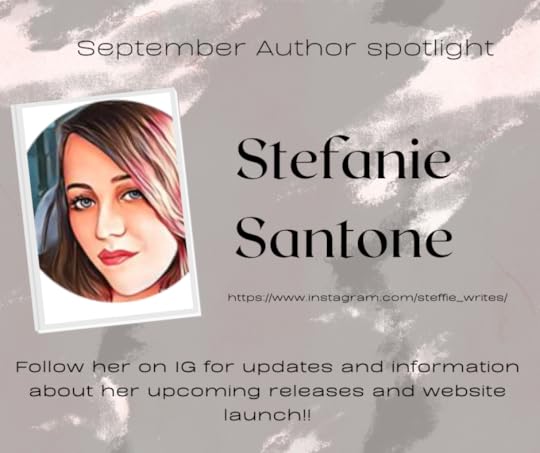
September 6, 2023
An Exploration of Literary Tropes: Patterns, Archetypes, and Themes

Literary tropes are recurring themes or elements found across different works of literature. They are the figurative or metaphorical use of words and expressions, often used to convey complex ideas in an accessible way. Let's explore some of the most common tropes, their meanings, and examples.
1. The Hero's JourneyThe Hero's Journey is a narrative pattern in which a hero who sets off on an adventure, faces and overcomes challenges, and returns home transformed.
Stages: Ordinary World: Introduction to the hero's normal life. Call to Adventure: The hero is faced with a challenge or quest. Refusal of the Cal: Initial reluctance to accept the challenge. Meeting the Mentor: The hero meets a wise figure who helps them. Crossing the Threshold: The hero fully commits to the adventure. Trials and Challenges: The hero faces obstacles and tests. The Climax: The hero faces a final and most significant challenge. Return with the Elixir: The hero returns home transformed.Example:"The Lord of the Rings" series by J.R.R. Tolkien.
2. Love TrianglesA love triangle is a romantic relationship involving three individuals. It's often used to create tension and drama.
Example:"Twilight" series by Stephenie Meyer.
3. The Chosen OneThis trope involves a character who has been chosen, often by destiny or prophecy, to achieve a specific goal.
Example:Harry Potter in the "Harry Potter" series by J.K. Rowling.
4. The Wise Old MentorA wise, often elderly figure, imparts knowledge or guidance to the protagonist.
Example:Gandalf in "The Lord of the Rings."
5. The Damsel in DistressA female character who is placed in a perilous situation and requires rescue.
Example:Princess Peach in the Super Mario franchise.
6. The Anti-HeroA central character who lacks conventional heroic qualities.
Example:Walter White in "Breaking Bad."
7. The Tragic HeroA heroic character with a flaw that leads to their downfall.
Example:Macbeth in Shakespeare's "Macbeth."
8. The Reluctant HeroA character who does not initially want to take on a heroic role.
Example:Rick Blaine in "Casablanca."
9. The QuestA journey towards a goal, often involving obstacles and growth.
Example:"The Odyssey" by Homer.
10. The Cinderella StoryA story where a character rises from humble origins to success.
Example:"Cinderella" by Charles Perrault.
Tropes are essential tools in storytelling, helping to connect readers with universal themes and emotions. While some critics argue that tropes can become clichéd, when used innovatively, they can deepen a narrative and make it more resonant. They remind us that, across cultures and times, human stories share common ground, reflecting shared experiences and values.
The Hero's Journey is a narrative template that outlines the typical stages of a hero's adventure. It's a universal story structure found in myths, fairy tales, and modern stories across various cultures. Here's a detailed look at each stage and its importance in crafting compelling narratives.
1. Ordinary WorldImportance:Establishes the Status Quo: Introduces readers to the hero's everyday life, setting, and characteristics.
Creates Contrast: By showing the hero's ordinary world, later extraordinary events have more impact.
Writing Tips:Introduce the protagonist's daily life and struggles.
Build the setting and time, providing readers with a baseline for the story.
2. Call to AdventureImportance:Inciting Incident: Kicks off the main plot and challenges the status quo.
Stimulates Interest: Raises questions, and hooks the reader.
Writing Tips:Present a problem or quest that disrupts the hero's ordinary life.
Make the call intriguing to engage readers.
3. Refusal of the CallImportance:Adds Realism: Shows the hero's initial reluctance, making them more relatable.
Builds Tension: and adds uncertainty and suspense.
Writing Tips:Explore the hero's fears, doubts, or obligations.
Show why the hero might resist the call.
4. Meeting the MentorImportance:Provides Guidance: The mentor offers wisdom, training, or tools.
Strengthens the Hero: and prepares the hero for the trials ahead.
Writing Tips:
Develop a memorable mentor character.
Utilize dialogue or training scenes for exposition.
5. Crossing the ThresholdImportance:Mark's Commitment: The hero fully commits to the adventure.
Separates Old from New: Distinguishes the ordinary world from the adventure ahead.
Writing Tips:Highlight the hero's determination.
Use symbolic elements to mark the transition.
6. Trials and ChallengesImportance:Character Growth: The hero learns, grows, and overcomes obstacles.
Builds Suspense: and engages readers through uncertainty and conflict.
Writing Tips:Design varied and escalated challenges.
Show how the hero evolves through these experiences.
7. The ClimaxImportance:Pinnacle of Action: The highest point of tension and conflict.
Tests the Hero: The ultimate test of the hero's growth and transformation.
Writing Tips:Craft a thrilling and challenging climax.
Showcase the hero's development through their actions.
8. Return with the ElixirImportance:Resolution: Resolves the main plot and subplots.
Transformation: Shows how the hero and world have changed.
Writing Tips:Bring the story full circle, connecting it back to the ordinary world.
Highlight the hero's transformation and what they've gained.
ConclusionThe Hero's Journey is not just a template but a rich framework that resonates with readers. It's flexible and can be adapted and infused with originality. By understanding each stage's importance and how to effectively write them, authors can craft engaging and timeless stories that tap into universal human experiences and emotions. Whether writing a mythic epic or a modern adventure, the Hero's Journey offers a tried-and-true path to storytelling success.

Kay Parquet is the author of Unbound Pages a Vella story.
August 30, 2023
Embracing the Uncharted: Being a Plot-Free Author

Hey there, aspiring writer! Are you tired of the traditional rules and formulas of storytelling? Do you find yourself daydreaming about uncharted literary territories where creativity knows no bounds? Well, my friend, you've come to the right place! Welcome to the wonderful world of plot-free writing, where imagination reigns supreme and the journey unfolds spontaneously, just like a delightful conversation with an old friend.
First things first: What is plotting? Think of it as the road map for your story—a carefully crafted plan that outlines the beginning, middle, and end. Plotters sketch out each twist, turn, and character development before putting pen to paper (or fingers to keyboard). It's a tried-and-true method that helps authors maintain structure and coherence in their tales.
But, hear me out: plotting is not for everyone. There are rebellious souls out there, like you and me, who prefer to let their creative juices flow organically. We thrive on the thrill of uncertainty and find solace in the unknown. Plot-free writing is an adventure, akin to embarking on a spontaneous road trip with no GPS—intimidating yet exhilarating!
So, how can you be a plot-free author? Let's dive in:
1. Trust Your Imagination:
Plot-free writing begins with trusting yourself. Imagine your characters as real people, friends you've known for years, and let them surprise you with their actions and choices. Trust that your mind is a treasure trove of ideas, and let it guide you through the winding narrative paths.
2. Embrace the Discovery Process:
Think of your writing journey as a grand expedition. You're an explorer, and your pen is the compass. Allow your characters to lead you to unexplored destinations, even if it means getting lost from time to time. The beauty lies in the serendipitous discoveries you make along the way.
3. Be Open to Change:
In the plot-free realm, change is your ally. Be prepared to let go of preconceived notions and embrace unexpected twists and turns. Your characters might lead you down surprising rabbit holes, and that's when the magic happens.
4. Write Without Judgment:
Keep in mind that there is no set path for you to follow, so let your creativity run free. Write freely, knowing that editing will be your trusted companion in refining the raw brilliance of your work.
Now, some skeptics might argue that plot-free writing is a recipe for disaster, resulting in aimless and meandering narratives. But, my friend, that's a myth we're here to dispel! Plot-free writing is an exercise in freedom, and it's not without its own set of advantages.
1. Authentic Characters:
When you allow your characters to lead the way, they come alive with authenticity. They surprise you with their strengths and vulnerabilities, making them relatable and lovable to your readers.
2. Spontaneous Magic:
Plot-free writing is an enchanting dance between the writer and the words. As you explore the uncharted territories of your imagination, you'll stumble upon magical moments that you never knew existed.
3. Avoiding Writer's Block:
Oh, the dreaded writer's block! It's no match for the plot-free writer. There is always something exciting to explore because there isn't a set structure to follow. This keeps your creative juices flowing.
4. Reader Engagement:
With no predictable plot line, your readers will eagerly flip through the pages, eagerly anticipating what comes next. It's like an interactive experience where both you and your readers are on a thrilling adventure together.
So, dear friend, as you set forth on your plot-free journey, remember to embrace the unknown, trust your intuition, and revel in the spontaneous magic of storytelling. Allow yourself to be surprised, moved, and changed by your own words. After all, isn't that what friendship with a book is all about—discovering something new and meaningful with every turn of the page?
Go forth, my intrepid storyteller, and let your creativity soar like a kite in the wind. The world awaits your plot-free masterpiece with eager anticipation, and I, for one, can't wait to be swept away by the brilliance of your imagination! Happy writing!

Kay Parquet, a whimsical wordsmith, weaves tales with her pen and occasionally brushes strokes of artistry on the canvas of her imagination.

In the enchanting realm of Unbound Pages, Eudora, a paper mage, embarks on a perilous journey alongside her steadfast comrades, bracing for an unpredictable destiny.
As the fabric of the world frays, fragment by fragment, and ethereal beings tremble, they shoulder the daunting task of pursuing three formidable figures: 'The Mage,' 'The Alchemist,' and 'The Engineer,' for fear that their actions may unravel existence itself.
Together with an enigmatic automaton and a vampire, Eudora fearlessly strides through a future where she has never truly belonged. With unwavering resolve, she sets forth to defy the very threads of fate.
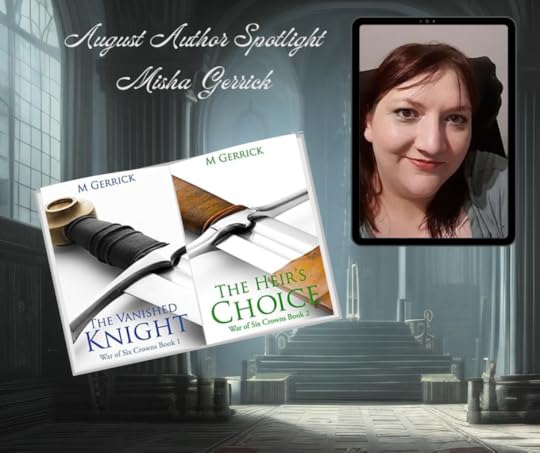
August 23, 2023
Writing When You Don't Know What to Write About

Three suggestions and explanations of each that will help you write articles & stories.
As a writer who publishes nonfiction and fiction, I often need extra boosts to motivate me to write a story. I didn’t niche down in Medium, but I have specialized lists of topics that go together. Outside of that, I write what feels proper for the day. You also want to capture any trending and appealing writing topics to maximize your clicks and reader engagement.
Some days, my imagination is screaming, because it doesn’t want to come up with anything for me to write at all. Unfortunately, to be successful at anything, you need practice and consistency. So, I need to get something out. What do I do?
Here are 3 suggestions that I have personally used to help me overcome minor writer’s block to continue publishing stories every week.
Hopefully, my suggestions will help you kick-start your ideas. Remember, you need to personalize these prompts in your unique way.
Regular Writing PromptsWriting prompts are an excellent tool for sparking creativity and inspiration. They help writers overcome writer’s block and delve into extra levels of imagination. Where can you find writing prompts?
I’ve found them using social media to actually look up the term Writing Prompts. Sometimes, you can find them by adding the theme or genre as well. For example:
Writing Prompts…
Writing Prompts Horror
Writing Prompts Romance
Writing Prompts Current Events
Ideas that BUZZ
If you’re writing articles that deal with current events, there are other prompts available. I write a lot of opinion pieces that include my take on current events. Reading, watching, or listening to news outlets can influence your next article. I look at cultural trends and seasonal elements that will shape the trends and therefore keywords of the moment.
For this, you can also dive into online forums, social media platforms, and writing communities. These are usually full of people discussing the most recent trends and social issues. Find topics that are generating a lot of buzz and check them for SEO viability.
Once you know there is an audience for the topic and you’ve got the proper keywords to give the audience a map to your article, all that’s left is to write. This isn’t just for hot topic political and social news. This works for holidays, seasonal activities, popular genres, and emerging writing trends.
Using Art to Drive Your WritingHow can you use art to drive your ideas? Easy! Now, these prompts are more for fiction, in my opinion, than the others. But, I suppose you could use them for non-fiction, especially articles.
Craft a thought-provoking satire that sheds light on the absurdities we face today that challenges norms.
Transport your readers to a different era. Weave captivating historical fiction full of rich details and vivid characters. Or, if there’s a particular portion of history that you like to research, talk about that. You can even fictionalize the things happening in that timeframe.
Take your readers on an adventure to some place they’ve not experienced. Write about travel or locations you’d like to research. Talk about what to expect and warn them about problems they may encounter.
Find a setting within paintings or artwork that spurs your imagination. Come up with a description. Help the reader explore your uncharted territories and encounter unexpected obstacles.
Write a dialogue-driven short story. Explore the complexities, nuances, and misunderstandings associated with things you see in history or in art. If there are two characters in a painting or in a scene from history, create a dialogue between them. This can be funny or serious and thought-provoking.
Make sure no matter which of these suggestions you use, pay attention to the senses. You want your piece, especially fiction, to be sensory-rich. It should evoke the experience of your characters (if you have those) or the subjects. Immerse your readers in a symphony of sights, sounds, smells, tastes, and textures.
Emotions and Personal ExperienceCompose a story set in a world dominated by technology. Use our own lives and the technology that enhances and yet also becomes problematic. Explore the complexities and impact of digital connections on relationships.
Reflect on personal experiences and write an essay that delves into navigating through life transitions. Remember to outline the lessons learned along the way.
Express the emotions tied to a random word, smell, place, etc. Whether you are writing an article, short fiction, or a poem, create a heartfelt piece. Touch on what the subject means to you and really dig in to the senses and emotions available to you.
Remember, you don’t have to have credentials to speak as a knowledgeable person in the areas you have experience with. I have a lot of experience with a lot of different topics. I know the ins and outs of those topics and so I can write about them using that experience. You can, too.
Just Remember…You should accompany each of your articles with a descriptive, attention-grabbing headline. You want to capture your audience’s curiosity and entice them to dive into the journey with you. Choose strong action verbs, intriguing adjectives, and keywords related to the subject. This will maximize their sway on anyone that sees it. Hopefully, this will get readers to click on your article - then it’s up to your writing to keep them engaged.
Remember that if you can use hashtags or tags of any kind, do so. You want your article to appear to the people most interested in the topic. Never choose something that is off-topic as a tag or keyword. Your subject or headlines should pique the interest of your audience.
I hope my listing has sparked your imagination and inspired you to try something different to get yourself writing. Feel free to share your creations, your suggestions, and your challenges with me and other writers in the comments. Happy writing!


Rachel D. Adams is a mod for On the Wings for Writers Group. She's an author and freelance writer.

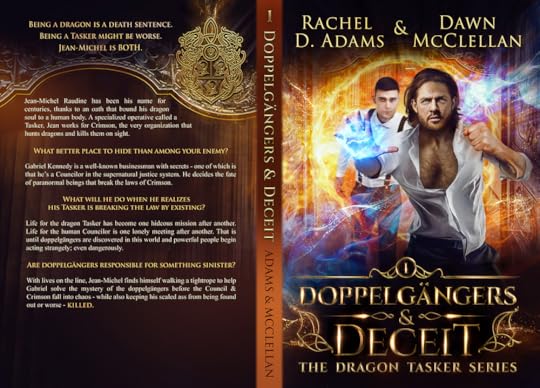


August 16, 2023
Unveiling the Wizardry: Life as a Secretive Social Media Admin for a Writing Group

For over a year now I have called myself The Butt in the Chair Girl. Scheduling, posting, and keeping up with the social media platforms for On The Wings for Writers Discord Server. Keeping track of social media has been a HUGE learning curve for me. Going from only have a basic personal page to managing a group. It has been so rewarding though and I have learned so much!
If you are interested in taking on some social media admin duties for a favorite group you are in or just to make your own social media marketing a bit easier then keep reading!
As a behind the scenes social media admin for a writing group, you have an important role to play in promoting the work of writers and helping to build a community of readers and fellow writers. Whether you are working for a small local group or a larger national organization, there are a few key things you should keep in mind as you go about your work.
First and foremost, you need to be organized. Social media management can be a daunting task, especially when you have to manage multiple accounts, each with its own unique requirements and audience. To ensure that you are efficient in your work, it is important to have a system in place to keep track of what you need to post and when. This could be a simple spreadsheet or a more advanced social media management tool that allows you to schedule posts in advance and manage multiple accounts from a single dashboard.
To ensure that I keep each group or page organized I have created files on my computer and pages in Notion for each platform. This includes regular posts and special events. As we have different events that come up monthly, I also have a monthly folder to keep everything together. I will take one or two days a month to batch schedule and create any images we might need for the upcoming events.
Another important aspect of being a social media admin is understanding your audience. Who are the members of your writing group, and what do they want to see on social media? Are they interested in writing prompts, publishing news, or just general updates about the group's activities? By understanding your audience, you can tailor your content to their needs and interests, which can lead to higher engagement rates. Pay attention to what gets the most engagement on your social media channels and adjust your strategy accordingly.
As I handle a writing group and most of the audience are authors, writers or other creative type people, I use backgrounds and images on theme with the type of event and easily connect to someone as they scroll. For instance, when we have a writing workshop, I make sure to add hashtags that are frequently searched for authors, workshops for authors and author or writer support. There are times when I have forgotten hashtags and that does really affect the number of reaches a post gets.
It is also important to be consistent in your posting. Your followers will come to expect a certain level of activity from your group's social media accounts. If you go silent for long periods of time, they may lose interest or forget about you altogether. Try to post at least a few times a week, and stick to a regular schedule if possible. Consistency can help you build a strong brand presence and keep your followers engaged.
I have a consistent set of topics that I post with both daily and monthly. This makes it easier to refresh the wording and images rather than continually creating all new posts. This is so helpful!
Finally, don't forget about engagement. Social media is a two-way street, and you need to be actively engaging with your followers if you want to build a strong community. Respond to comments and messages in a timely manner, and consider running contests or other interactive campaigns to get people involved. Encourage your followers to share their work, and support them by sharing their content on your social media channels. By doing so, you can help build a supportive community of writers and readers who are passionate about the written word.
There is a team of admins that help with engagement on the front end of the groups. If you have a team that can help respond to comments or questions then you don’t have to spend as much time on this area of social media. However, if you are working on personal social media, carve out a scheduled time to engage with your audience.
Being a social media admin for a writing group can be a challenging but rewarding experience. By staying organized, understanding your audience, being consistent, and engaging with your followers, you can help build a thriving community of writers and readers who are passionate about the written word. Remember, social media is an ever-evolving landscape, so be open to new ideas and strategies, and be willing to adapt as needed. With dedication and hard work, you can help your writing group achieve its goals and build a strong online presence.
As a final note, IF you are the one who manages the platforms for posting and scheduling, this does not mean you have to shoulder everything. If you are posting for a group that you have a team of admins or mods to talk to, use that team. The team I work with is so amazing. We share post ideas, graphics and topics so that the content stays on point and engaging for our community!

Brandy Bullock is a valuable member of On the Wings for Writers.
She also creates beautiful journals you can buy on Amazon today!
She owns a social media art design company.

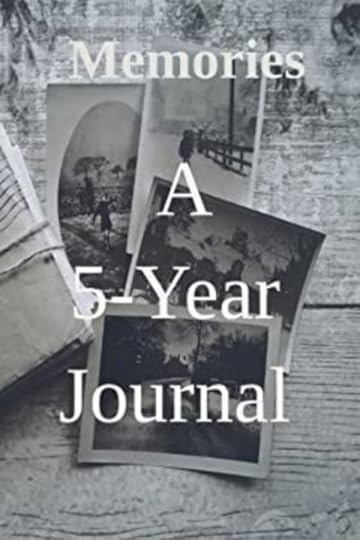
And she has a Kindle Vella now.


July 26, 2023
S. A. Crow's Upcoming Surgery and What It Means for "The Fire Series" Fans

Greetings, dear readers!
Today, we come bearing some important news about one of our beloved authors, S. A. Crow. As many of you may know, S. A. Crow has been crafting captivating stories that have captured the hearts of readers worldwide. The Fire Series, in particular, has kept us on the edge of our seats, eagerly awaiting the release of its much-anticipated third installment, "If the Seas Catch Fire."
However, we regret to inform you that due to unforeseen circumstances, S. A. Crow is facing a medical challenge and will be undergoing surgery on the 10th of August. The procedure will require some time for recovery, and as a result, our favorite author will be laid up for approximately six weeks.
We understand that this news may come as a disappointment to fans who have been eagerly awaiting the release of "If the Seas Catch Fire" this December. Rest assured, though, that S. A. Crow is fully committed to completing the novel and bringing it to our bookshelves as soon as possible.
The journey of an author is not always a smooth sail, and sometimes, life's unexpected turns throw a wrench into even the best-laid plans. Nevertheless, we want to take a moment to show our unwavering support for S. A. Crow during this challenging time. Let's come together as a community of readers to send our positive thoughts and best wishes for a successful surgery and a speedy recovery.
In the meantime, while S. A. Crow focuses on healing and getting back to writing, we will be doing our part to keep the magic of "The Fire Series" alive. We'll be reposting some of the most beloved posts from the past, allowing us to relive those enchanting moments and delve once more into the intricately woven tales.
To our dear author, S. A. Crow, we want you to know that we stand by you, eagerly awaiting your return. Take all the time you need to recover fully, and remember that your readers will be here with open arms when you're ready to share your stories with us again.
As fans of "The Fire Series," let us come together and extend our support and understanding. Great art takes time, and we know that "If the Seas Catch Fire" will be worth the wait.
We'll keep you updated with any news regarding the release of the third book. Until then, let us surround S. A. Crow with love and positivity, wishing for a successful surgery and a swift path to recovery.
Thank you for being a part of this wonderful community of readers. Stay tuned for more updates, and most importantly, take care of yourselves and each other.
Warmest regards,
Black Bird Books Publishers
July 12, 2023
The Captivating Male Lead of "If the Seas Catch Fire"
 Introducing Steve: The Captivating Male Lead of "If the Seas Catch Fire" (Book 3 of the Fire Series)Brief overview of the Fire Series by S. A. Crow
Introducing Steve: The Captivating Male Lead of "If the Seas Catch Fire" (Book 3 of the Fire Series)Brief overview of the Fire Series by S. A. CrowThe Fire Series by S. A. Crow is a nine-book series following a group of friends starting with the first novel Into the Fire where we are introduced to the core couple of the friends Travis and Raven. Tony left in the first novel to help his old Navy CO Admiral Haun when his daughter is kidnapped by her ex-boyfriend in The Fire Inside, we find Anna and Tony and his friends attempt to keep her safe from a deeper danger. Home Fires was a free novella offered to newsletter subscribers and is Travis and Raven’s story between The Fire Inside and If the Seas Catch Fire book three.
Setting the stage for "If the Seas Catch Fire" as the highly anticipated third bookIf the Seas Catch Fire, we explore the anticipated relationship between Steve and Mallory. They’ve been flirting with each other since Raven met Travis and much hilarity has ensued at their expense. In this novel I’ve worked with the themes of the toxic side of the #metoo movement and subverting the toxic trope that only women crave a deeper relationship.
Introducing Steve as the intriguing male lead who will captivate readersSteve starts If the Seas Catch Fire wanting to have a meaningful relationship with Mallory. He’s in a good place in his life, career, and hobbies. Hell, he was asked to be the speech writer for a local deputy mayor candite. He’s fascinated with Mallory’s personality, drive, and sense of humor.
Unveiling Steve's Background and PersonalitySteve is the clown of friends or one of them I should say. He uses his humor to deflect from people learning too much about him. He moved to Los Angeles, CA to be an actor but found that kind of stage wasn’t for him when he and Travis tried out for the same part. They became fast friends and couch surfed each other’s couches in the early years while Travis started his acting career and Steve worked on becoming a freelance journalist. While living out of each other's pockets they found their shared love of music and with the addition of Mike their drummer they formed the rock country fusion band Home. The series opens with Home, an established band stationed in Seattle, Washington.
His physical appearance and distinctive featuresSteve looks a lot like the actor Ryan Reynolds. Tall with brown hair sun bleached by the summer sun when he’s on his sailboat. Laugh lines crinkle the corner of his eyes to match the smile lines on either side of his mouth. C. Exploring Steve's personality traits and highlighting his strengths and flaws
Steve "Sexy Beast" Martin
Birthdate: July 8th
Zodiac Sign: Cancer
Height: 6'2" Tall
Body Type: Brown Hair and Brown Eyes Personality Type: ESFP
Job(s):
Freelance Journalist Guitarist / Bassist and Co-Founder of the band "Home"Guilty Pleasures: Watching Rom-Coms and romantic movies.
Ex-Military (Navy)
Owns a sailboat and a Harley
If you would like to shop around for the other men in the series and find a book boyfriend head here.
Steve's Role in the Fire Series A. Summarizing Steve's presence and significance in the first two booksIn the first novel Into the Fire, Steve is Travis’s best friend and takes him to task for what he did to Raven. He also suggested an old navy buddy to be Travis’s bodyguard, Tony Lisi.
The Fire Inside, the second novel. Steve helps out during Anna’s photo shoot in Seattle.
The series’ story arch is friends as family. They can pull you back from the flames.
Steve's arc and storyline of Steve in "If the Seas Catch Fire"Steve is given notes on the case that Tony and his team dealt with when they saved Anna in The Fire Inside. He knows with a bit of research he can turn these notes into an expose that he can sell to a local news outlet. While they are preparing to go on tour for their band Home, he sees if Mallory would like to start a relationship with him. His arch is one of realizing that sometimes it’s best to get help from the experts.
His relationships with other characters and their influence on his developmentThe biggest relationship for Steve in If the Seas Catch Fire is with Mallory. He’s been seeking to build a relationship with Mallory for a few months now.
Travis and Mike stand behind him when Steve is the victim of the toxic side of the #metoo movement.
Tony, Walt, Nate, and Eliot gave him the notes for his expose and they look into the events that Steve is plagued with and find the culprits and help go after the attackers.
Celeste, Home’s new public relations director attempts to spin the bad press of the last concert that made Steve a victim of the press’ #metoo hunts. She is also the go between for the band and the recording company.
Hutchenson the new Deputy Mayor that Steve wrote speeches for helps him with legal help and moral support.
 Sign up for the
newsletter
to get updates on this novel and also join the
street team
to get behind the scenes news, give feedback, giveaways, and more.
Sign up for the
newsletter
to get updates on this novel and also join the
street team
to get behind the scenes news, give feedback, giveaways, and more.


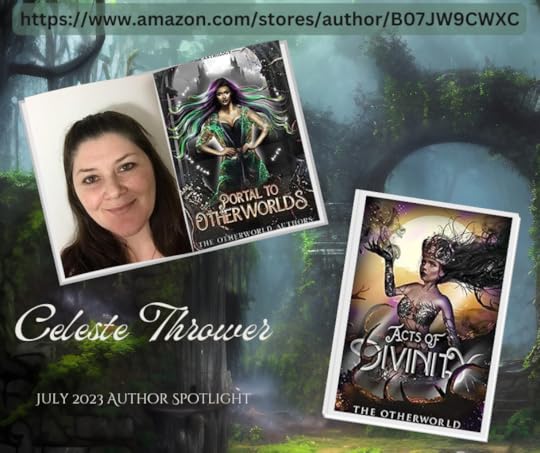
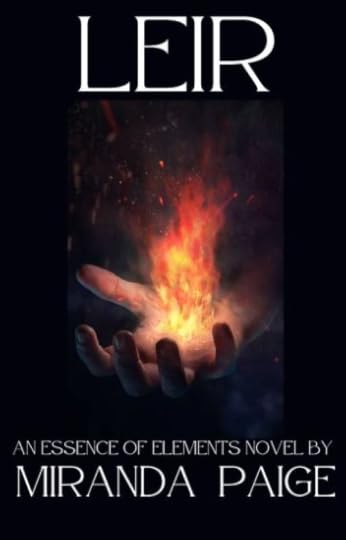

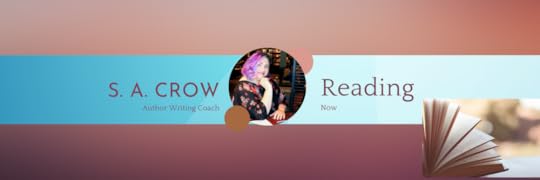
Cakes and Ale for the Pagan Soul
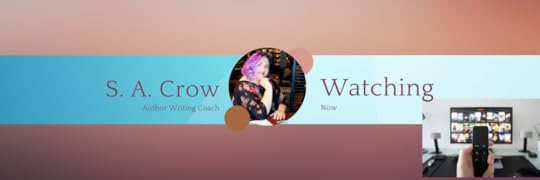
Wendigoon Serial Killer Iceberg
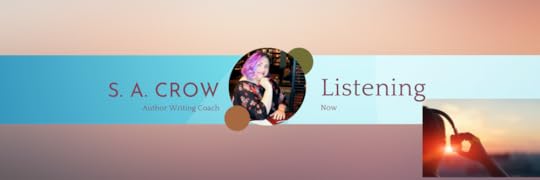
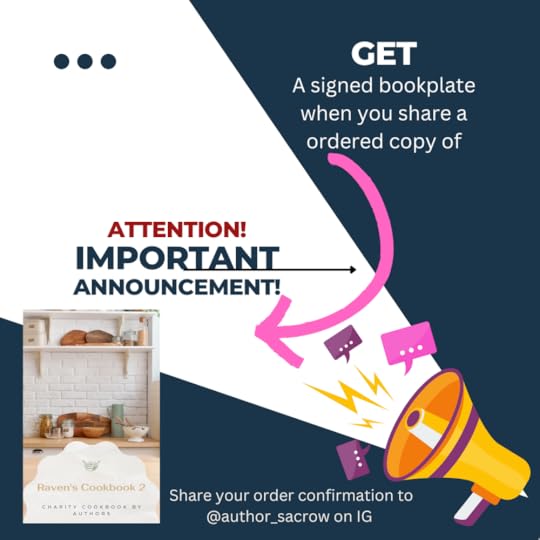

July 5, 2023
Blogging as an Author:

In today's digital age, blogging has become an essential tool for authors to connect with readers, showcase their expertise, and build a thriving online presence. In this article, we will explore the world of author blogging and delve into its numerous benefits. From increased exposure to establishing meaningful connections, we will uncover the reasons why author blogging is an indispensable aspect of a writer's journey.
Benefits of Blogging as an AuthorI know I can hear you now, I barely have time to write my book now you want me to blog too. Here me out first.
Increases Exposure and Audience Reach: It allows you to expand your reach beyond your books. By sharing your content, your journey, and what you’ve learned you can attract new readers, broaden your fan base, and create buzz around your work. Establishing an Online Presence: We have to admit that being an author equals business owner and that includes having an online presence. You can’t just add your books to Amazon and expect to get readers right out of the box. Sure, you can spend tons of money to get ads or get your book into email lists. By consistently publishing content, you can establish yourself as authorities in your genre and foster a loyal community of readers. Building Relationships with Readers: This is the most rewarding part of author blogging is the chance to connect directly with your readers. By engaging in conversations through comments and social media you can build meaningful relationships, receive much needed feedback, and gain valuable insights into your readers’ preferences. Sharing Knowledge and Expertise: Blogging provides you with a platform to share your knowledge and expertise beyond your books. You can provide writing tips, behind-the-scenes glimpses, and delve into the research process behind the stories your write. Potential for Additional Income $$: It opens up avenues for income through things like affiliate marketing, sponsored posts, or even selling exclusive content directly to readers.Best Practices for Author Blogging Consistent Posting Schedule I pick a day of the week that my blog goes live every week. If I have a bad week, I will recycle a older blog post with a few tweaks and post it. Consistency is key to keeping readers engaged and anticipating new content. Quality Content With AI this is becoming easier; Use AI to find catchy SEO titles and introductions, to outline your blog for you, to look up information you are unsure of, and edit and rephrase for SEO with just a few clicks. Engaging with Readers Respond to comments encourage discussions Incorporate reader suggestion into future posts Promoting Posts on social media Use social media to promote your posts. AI makes this easier with suggestions for engaging posts Share snippets, quotes, or teasers from your blog post Utilize SEO Best Practices Search Engine Optimization (SEO) can increase the reach of your posts. Use relevant keywords Optimizing meta tags Craft compelling headlinesOvercoming Common Challenges for Authors Writing Blogs Time Management Set realistic goals Create a schedule by prioritizing tasks Break up the project into chunks throughout the week Writer’s Block: Explore different topics seek inspiration from your readers collaborate with other authors for guest posts Balancing Blogging with other Writing Projects Plan ahead set clear priorities maintain a flexible schedule and be kind to yourselfBlogging has emerged as an indispensable tool for authors to amplify their reach, establish meaningful connections, and share their passion with the world. By embracing the benefits and implementing best practices, author bloggers can navigate the digital landscape with confidence, while forging a path towards success and connection in the ever-evolving publishing industry. So, why wait? Start author blogging today and unlock the endless possibilities awaiting you on this exhilarating journey.
You can find some of my other blogging as an author posts
B logging your Book



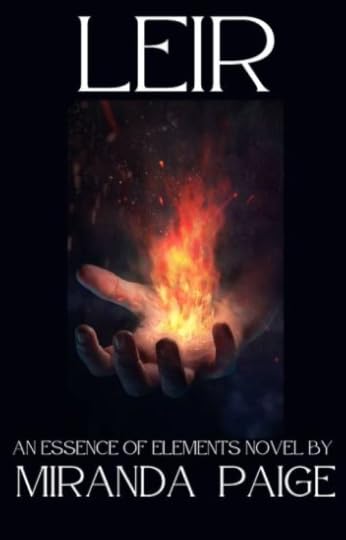





Do Not Disturb by Freida McFadden
June 28, 2023
Unleash Imagination:
Insights from a Fiction Writer’s Journey - Unlock Your Creative Potential

Welcome to Unleashing Imagination: Insights from a Fiction Writer’s Journey, where we delve into the captivating realm of fiction writing, guiding you on how to unlock the full potential of your own imagination. In this captivating blog post, you will gain profound knowledge about the rich history of fiction writing, gain insights into the current state of the industry, and delve into personal anecdotes and invaluable lessons learned from my own fiction writing journey. Whether you're an aspiring writer hungry for knowledge or simply captivated by the power of imagination, this post guarantees to equip you with invaluable insights and tips to fuel your creative fire. Join us today and embark on a journey to unleash your creativity, learning from the very best in the business.
History of Fiction: Unlocking the Past to Inspire the FutureThe history of fiction writing stretches back through the annals of time, captivating humanity since ancient civilizations. From the legendary epic poems of Homer to the immortal plays of Shakespeare, storytelling has been an integral part of our culture, allowing us to transcend reality and explore new dimensions. As time unfolded, fiction writing evolved in form and style, encompassing everything from the Gothic novels of the 18th century to the revolutionary experimental literature of the 20th century. Today, the fiction writing industry boasts unparalleled diversity and accessibility, with self-publishing avenues and a myriad of genres and formats at your fingertips. However, amidst this vast landscape, challenges arise, including the emergence of digital media and evolving reader expectations.
The Current State of Fiction Writing: Embracing Diversity and Navigating ChallengesIn the contemporary realm of fiction writing, diversity and dynamism reign supreme. The advent of self-publishing and digital media has opened up unprecedented opportunities for writers to share their literary creations with the world. Nonetheless, the industry grapples with its fair share of challenges, such as the ever-evolving expectations of readers, the surge of digital media and e-books, the influence of social media on book sales and marketing, and the intensifying competition within the self-publishing market. Navigating these challenges requires adaptability, perseverance, and a deep understanding of the ever-changing literary landscape.
My Personal Journey: A Tale of Imagination, Loss, and TriumphBorn into a family of avid readers, I imbibed the essence of literature from a tender age. The sight of a bookstore left an indelible mark on my heart, and my imagination became an escape during challenging moments in my childhood. The amalgamation of a vibrant imagination and unrestricted reading kindled my love for creating stories of my own. In my twenties, I crafted an urban fantasy detective novel, inspired by a short story that, regrettably, got lost along the way. Nevertheless, the manuscript lingered within the recesses of my mind. It was after completing my first romance novel that I resolved to rewrite that cherished manuscript. Looking back, I am grateful for that decision, as the journey shaped me into a superior writer. Presently, not only have I brought that manuscript to life, but I have also penned the second book in the series. Furthermore, a captivating novella bridging the two books is awaiting its worldwide release under my pen name, Ann Crow, on Kindle Vella and Tapas.
Lessons Learned: Illuminating the Path to MasteryThroughout my journey, I have gleaned invaluable lessons that have propelled me forward. Allow me to share some of these insights with you:
Embrace your uniqueness: Remember, your only competition is yourself. With each book, push yourself to grow and delve deeper into the craft. Write from the heart: Pen the stories you yearn to read, for you will immerse yourself in them for a substantial time. Authenticity breeds excellence. Walk your own path: Each author has a unique production schedule. Avoid comparing your progress to that of others and focus on your personal growth. The power of community: Surround yourself with a supportive writing group that has your back. If you can't find one, create your own tribe of like-minded individuals.Unleash Your Imagination: Tapping into the Wellspring of CreativityNow, let us explore effective ways to unlock your imagination and set your creativity ablaze:
Dive into diverse literature: Expand your horizons by reading widely and diversely, exposing yourself to new ideas and diverse perspectives. Embrace free writing: Set your imagination free by engaging in the practice of free writing. Write without constraints, disregarding structure and grammar. Harness the power of writing prompts: Allow writing prompts to ignite your creativity and spark new ideas that will fuel your storytelling journey. Nurture creative activities: Engaging in artistic endeavors such as painting, drawing, or playing music exercises your creative muscles, enhancing your ability to craft compelling narratives. Embrace daydreaming: Let your mind wander and indulge in daydreams. Often, the most enchanting stories emerge from the depths of a wandering imagination. Wander and absorb: Explore new places, near and far, to gain inspiration and fresh perspectives. Uncover hidden gems that breathe life into your narratives. Collaborate and connect: Engage in collaboration with fellow writers, bouncing ideas off one another to ignite new sparks of creativity and forge lasting connections.Unleashing Imagination: Insights from a Fiction Writer’s Journey opens the gateway to the world of fiction writing, arming you with the tools and inspiration to unleash your inner writer. Whether you're a seasoned wordsmith or just embarking on this thrilling path, this post serves as a wellspring of motivation to ascend new heights of imagination. Don't delay—join us on this transformative expedition today and awaken the dormant writer within you!

We BelieveIn a world where all people are free to express themselves with pride. We accept all genres, experience levels, and orientations.


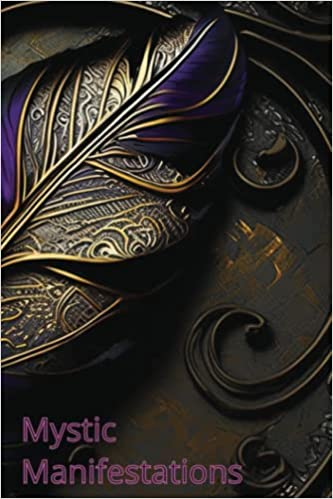


Critical Role the early Geek and Sundry videos


June 21, 2023
Alpha Read: Unlocking the Power of Feedback for Your Writing Journey

If you're an aspiring writer on a quest to improve your craft, you may have come across the term "alpha read." But what exactly does it mean, and how can it benefit you as a writer? In this blog post, we'll delve into the concept of alpha reading, providing you with valuable insights on how this process can help you create your best writing. Whether you're an experienced author or just starting out, this comprehensive guide will equip you with the knowledge to make the most of the alpha read experience.
What is an alpha read and why is it important?Alpha reading is a critical step for writers seeking to enhance their work. By sharing your writing with a select group of readers in the early stages of your writing process, you can receive valuable feedback on your story's potential before embarking on extensive revisions or edits. It allows you to gain insights and perspectives that may have been overlooked, helping you polish your writing to its fullest potential.
Determining readiness for an alpha read:If you're unsure whether you're ready to host an alpha read, start by assessing your personal goals and objectives for your writing project. Are you looking to refine your characters and plot, or do you want to focus on honing your writing style? By clarifying your intentions, you can effectively prepare yourself for the alpha read process.
Hosting an alpha read:Practical steps to consider: To successfully host an alpha read, you'll need to assemble a group of readers who are willing to provide valuable feedback on your work. Here are some strategies to consider:
Connect with fellow writers: Reach out to other writers within your community who may be interested in exchanging manuscripts. Join writers' groups, both online and offline, to connect with like-minded individuals who share your passion for writing. Utilize online platforms: Explore online writing groups, forums, and platforms, such as Goodreads, to find potential readers who can offer constructive feedback on your work. Engage your friends: Don't underestimate the enthusiasm of your friends! Reach out and ask if they would be interested in reading your work. You might be pleasantly surprised by their willingness to support you.Providing incentives for your readers:Motivate your readers by offering them incentives to engage with your work. Consider the following ideas:
Provide early access to the finished product. Extend a special thank you in the acknowledgments section of your book. Offer the opportunity to beta read future works. Promise a signed copy of the book once it's published. Provide a free copy of the book upon publication. Personalize the experience with a thoughtful note from the author.Selecting the right readers for your alpha read:Remember, not all feedback is equal. Look for readers who have a genuine interest in your genre and possess a solid understanding of the conventions and expectations within your target audience. Seek out individuals who can offer both constructive criticism and encouragement, helping you identify areas of improvement while boosting your confidence and motivation to keep writing.
Unlocking the benefits of an alpha read:An alpha read empowers you with valuable feedback during the early stages of your writing process. By leveraging insights from a select group of invested readers who understand the expectations of your genre, you can identify potential issues and areas for improvement before delving into extensive revisions. This process offers you a glimpse into how your work may be received by the wider public, providing you with the confidence and motivation to continue honing your skills.
In summary, an alpha read is a powerful tool for any writer seeking to create their best work. By harnessing feedback from a select group of readers early in the writing process, you can gain valuable insights, address potential issues, and refine your work before dedicating extensive time to revisions. With careful preparation and effort, an alpha read can elevate your writing to new heights, enabling you to embark on a rewarding writing journey.




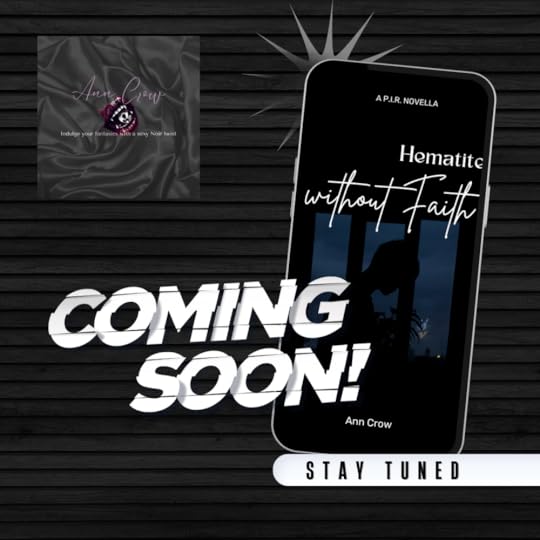


Her Three Best Friends by Molly Eden
A Game of Thrones by George R. R. Martin

Old Episodes of Critical Rol, on Geek and Sundry
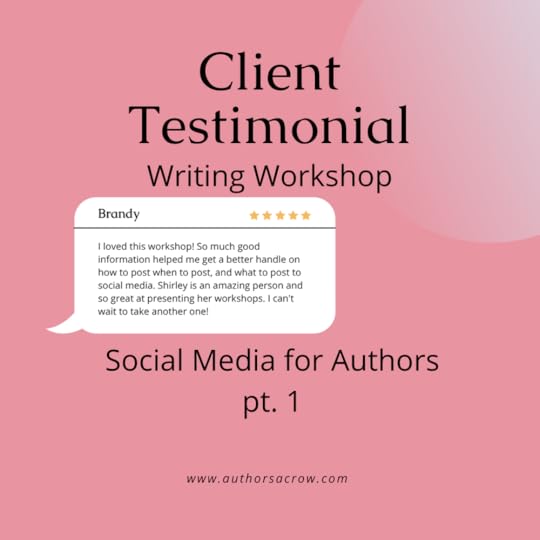 Sign up for more tips and tricks on Writing, Revision, Editing, and Publishing.
Sign up for more tips and tricks on Writing, Revision, Editing, and Publishing.



